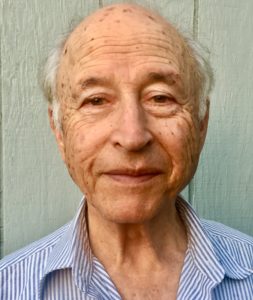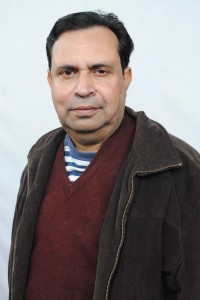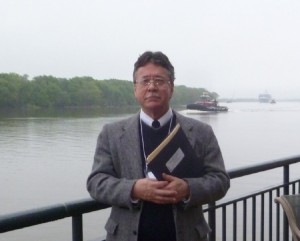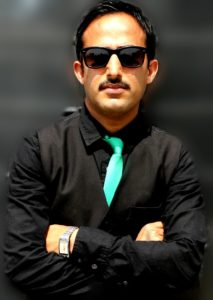Introduction to Next Arrival: The Many Faces of Creative Indeterminacy
by Ian Irvine (Hobson)
Poetic Indeterminacy 1: L=A=N=G=U=A=G=E poetry and Late Modernist Experimental Poetry
When Marjorie Perloff, long-term critical advocate for L=A=N=G=U=A=G=E poetry (indeed for experimental poetries generally), published The Poetics of Indeterminacy: Rimbaud to Cage back in 1981, she wanted to trace a particular kind of poetic ‘indeterminacy’ back to its 19thcentury roots in Rimbaud. Early on she quoted Barthes’ perspective on Rimbaud’s poetics: ‘Rimbaud … destroyed relationships in language and reduced discourse to words as static things … In it, Nature becomes a fragmented space, made of objects solitary and terrible, because the links between them are only potential.’ Perloff then traced the 20th century developments in this emerging poetics via chapters on Gertrude Stein’s ‘word-systems’, Samuel Beckett’s ‘poetics of absence’ and John Ashberry’s ‘open field of narrative possibilities’ (elsewhere termed a ‘field poetics’). Her book concluded with studies of the ‘marginless’ poetics of David Antin and the chance-operations poetics of John Cage , who wrote of his later works: ‘They begin anywhere, last any length of time … They are therefore not preconceived objects … They are occasions for experience.’ Perloff’s book led to further studies in which she announced L=A=N=G=U=A=G=E poetry as a further chapter in this century old poetics of ‘indeterminacy’.
Robin Ouzman Hislop’s poetry is certainly in dialogue with some of the key architects of this well documented ‘poetics of indeterminacy’ – both the Modernist strands represented by the likes of Beckett and Stein, and the postmodernist strands represented, initially, by Ashberry and Antin, and later on by poets like Charles Bernstein, Bruce Andrews, Lyn Hejinian and Ron Silliman. Next Arrivals, however, like Hislop’s second collection Cartoon Molecules, also explores and responds to themes only rarely addressed by 20th century experimental poets.
In both Cartoon Molecules and Next Arrivals we start to catch glimpses of a hulking phantasmagoric something (a transhumant creature perhaps?) as it ‘slouches’, ‘transforms’, ‘self-engineers’, ‘machine learns’ it-self into being under cover of the postmodern twilight. Culturally speaking, something new is being born/engineered/programmed in these early decades of the new millennium and all three of Hislop’s collections, in my opinion, work hard to capture the cultural zeitgeist surrounding aspects of this transhuman nativity drama (one interpretation of the collection’s title, i.e. literally, the Next Arrivals). Hislop senses that new poetic forms – what we might label a new (perhaps quantum influenced?) ‘poetics of indeterminacy’ – may be called for here and, like US poet Amy Catanzano, he is courageous enough to initiate new experiments with poetic form in order to address the urgencies of our time.
Poetic Indeterminacy 2: Eulogies for the Passing of Mechanist Science
All this is to say that Hislop is keenly interested in exploring poetically a range of phenomena loosely related to ‘the New Sciences’. His interest, however, is not that of the wide-eyed, but willfully naïve, classical scientist. He understands humanity’s darker impulses – particularly our darker collective impulses – too well to buy into the idyllic marriage vows these days being exchanged between the New Sciences and extreme capitalism – however loved-up the happy couple appear to be in public. His unease and ambivalence regarding this pairing is evident in many of the poems featuring New Science themes. At times key poems descend into states of existential vertigo brought on by what is unfolding. Such themes are most directly addressed in the poem on (p.59) of the collection:
we invent them to serve us controlling our existence
to create virtual worlds with hells and heavens
myths domesticate science
fiction and reality blur shaping our reality
an assembly of biochemical algorithms flash fade flash fade
spinning
Similar notes of caution and critique accompany references to genetic programming, Artificial Intelligence (and the much publicised ‘approaching Singularity’), Virtual Reality obsessions (Hislop’s meditations on Bostrom’s ‘Simulation Argument’ are particularly interesting), quantum computers, and, so on, throughout the collection. He asks us to be wary of the way the New Sciences are merging with what he refers to as ‘datism’, and then warns us that ‘algorithms can control empire/ or an upper class ruling the planet’ (p.59). Later in the same poem (p.61) we read: ‘free market big brother/ watches every breath you take’. The New Sciences, of course, were founded on a profoundly ontological understanding of ‘indeterminism’, arising as they did, out of the discoveries of a range of early 20th century physicists – especially Heisenberg (with his so-called ‘uncertainty principle’).
Our need to explore these kinds of ontological uncertainty suggest a second major way to understand contemporary experimental poetries as ‘indeterminate’ – a way that brings Hislop close to the concerns of a growing band of writers creating what some are calling ‘Quantum Literatures’. What kinds of art, philosophy, poetry and poetics should we develop to address fundamental ‘indeterminacies’ of matter and consciousness (rather of consciousness observing matter)? Hislop does not, of course, advance explicit theories on such topics in this collection, but a poetic response to the challenges posed hovers above a number of the best poems in the collection. Such concerns also – whether consciously or unconsciously – seem to affect the formal flow of the collection.
Next Arrival can, in theory, be entered via a range of gates, since the 2nd to last poem in the collection mirrors the collection of lines used to construct the table of contents. Though there are no titles to each discernible segment of poetry – no capitals and headings to interrupt flow – we slowly become aware (via a kind of gentle memory murmur) that the first line of each new segment also appears in the table of contents (and will appear again at the end of the collection). In a sense then, our reading choices – i.e. whether we browse/surf the collection or proceed more conventionally from start to finish – ‘collapse’ a range (or field) of reading (and meaning) possibilities into a particular reading outcome. The experience, however, is always ‘hologrammatical’, since poem fragments from across the collection are embedded in secondary poems – producing the uncanny sense that every poem is linked to every other poem. Another term for this – a term directly related to the New Sciences – is ‘entanglement’. Specifically, we are talking about a poetics of entanglement. It is perhaps an intuitive development –possibly arising naturally out of Hislop’s deeply held ecological vision (as outlined in a number of the collection’s other poems). We note, however, that a poetics of entanglement may run contrary to the kind of language atomizing poetics we sometimes find in the more extreme manifestations of contemporary anti-representational poetry.
Although Hislop uses a range of L=A=N=G=U=A=G=E poetry techniques, the poems in Next Arrivals are never completely ‘anti-representational’. Rather meaning-creating choices, options, possible worlds/selves are offered up to the reader at every turn. The poet invites us to contemplate a new kind of reading freedom—a freedom built upon expansive notions of subjectivity, linked, in turn, to up-dated Existential and New Science perspectives. A subjectivity, in short, subliminally aware of the multiverse. Barthes’ summary of Rimbaud’s poetic (and, retrospectively the poetics of late Modernism and Postmodernism) – i.e. a poetics of ‘objects solitary and terrible’ – is not, in the end, Hislop’s poetic. Rather, we are talking about a poetry slanted toward human vulnerability and the facts of our inter-relational entanglements – a poetry addressing readers staring at the approach of an A.I. and big-data determined – perhaps Simulation programmed – future that may well see ordinary humans made obsolete and irrelevant – in a word ‘surpassed’. Interestingly, however, I suspect that for Hislop the risks associated with the fast approaching A.I. Singularity confront us as contemporary manifestations of what amounts to an age-old curse. Perhaps a classical allusion is in order. As we read Next Arrivals we become aware that we are still negotiating the Minotaur’s death-haunted labyrinth (in many ways the structure of the collection resembles that of a literary labyrinth). The face of the Minotaur, however, continuously shape-shifts into that of Saturn (old Father Time himself, or, put differently, the inevitable human encounter with death/mortality). There are thus a number of moving poems in Next Arrivals exploring mortality, ageing and the general fragility of human life. Two lines, for me, best summarise the collection’s new spin on this very old theme (p.69):
but I brimmed in apocalypse under the welter of bones
yield to the inevitable
Poetic Indeteminacies to do with Editing, Translating and New media Technologies
Hislop and his wife, Amparo Perez Arrospide, have edited the online literary and visual arts publication Poetry Life and Times (PLT) since 2006. In this age of global communication networks, it becomes increasingly difficult to separate a poet’s poetry from a poet’s elsewhere contributions to literary and online cultures. Everything swims together in a kind of ‘electronic soup’ of interactions and information nodes on the WWW (representing perhaps another kind of ‘field poetics’ or ‘poetics of indeterminacy’). For better or worse, the specialized poets of the 20th century have slowly been replaced by a new breed of transmedia savvy ‘uber-artists’. Some poets are well equipped for the new role. Hislop, certainly, is comfortable communicating in a range of genres, across a variety of conventional and new media platforms (e.g. reviews/nonfiction essays, translations, video-poems, teaching, poetry performances, etc. ), as well as through publishing the works of other poets at the PLT site (and we note that all good literary journals seek to construct ‘an open field of narrative possibilities’).
There is no doubt that PLT, here including work published via its sub-sites Artvilla and Motherbird , expresses a truly internationalist poetics. Its contributors herald from all over the planet and the various sites feature a range of poetic styles—traditional, modernist, postmodernist, experimentalist, etc . The editors are also committed to publishing the poetry of non-English language poets (translated, in many cases, by the editors themselves). We note here that ‘translation’ is itself a notoriously difficult and ‘indeterminate’ activity – there is always a trace of the translator in the finished product, however much he or she strives to eliminate any evidence of input. Overall, PLT augments ,and expands upon, the very same poetics of indeterminacy we encounter in Hislop’s own poetry.
*****
The creative Indeterminacies I have located in Hislop’s overall oeuvre are cause for celebration. Exploring such ‘creative indeterminacies’ will introduce us to zones of hybridity – the interstitial plazas and market-places that exist between the monolithic, but ultimately delusionary and oppressive, certainties fed us daily by governments, media moguls, religious leaders and ideologues. There is something liberating and eminently human about embracing the expanded notions of self we encounter in Hislop’s poetry. We note that John Cage also sought a more expansive definition of creative practice when he labeled his later experiments ‘occasions for experience’. We may apply the same terminology to the poems in Next Arrivals – they are, each and every one of them, ‘occasions for experience’. Hislop’s ‘occasions for experience’, however, highlight the ambivalences and anxieties, as well as the joys and occasional epiphanies, experienced by ordinary people attempting to make sense of our globalised, corporatized, information-saturated post-postmodern world.
Ian Irvine (Hobson) Victoria Australia 2018
Ian Irvine (Hobson) is an Australian based, British born, poet/lyricist, fiction writer, journal editor, and writing and creative arts academic. His work has been published extensively, including in a number of national anthologies, e.g. Best Australian Poetry and Agenda’s special Contemporary Australian Poets edition. He has published four books and has co-edited over 20 publications including 7 editions of the groundbreaking international literary ezine The Animist (1998-2001), as well as Scintillae 2012 (a print anthology containing work by over 60 Australian poets and writers). Ian has taught in the creative and professional writing programme at Bendigo Kangan Institute since 1999. He also lectures casually in a similar program at Victoria University, Melbourne.
Robin Ouzman Hislop is Editor of Poetry Life and Times his publications include All the Babble of the Souk and Cartoon Molecules collected poems and Key of Mist the recently published Tesserae translations from Spanish poets Guadalupe Grande and Carmen Crespo visit Aquillrelle.com/Author Robin Ouzman Hislop about author. See Robin performing his work Performance (University of Leeds)






